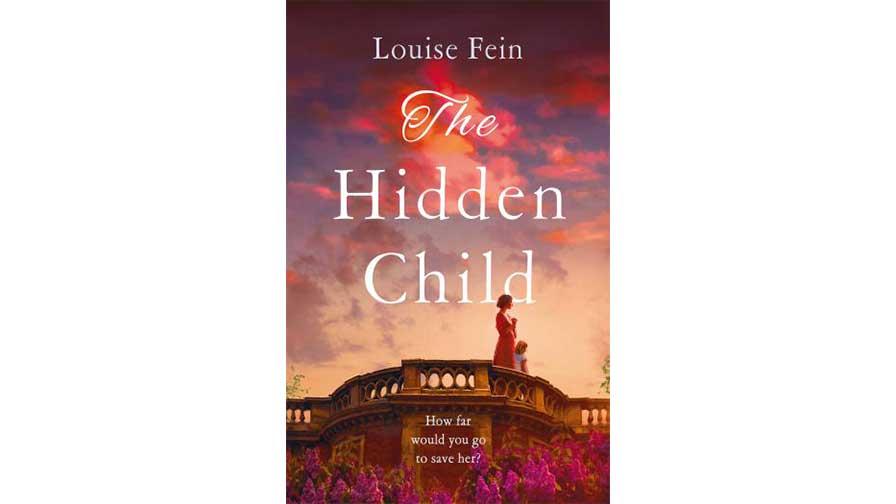Louise Fein’s second novel, The Hidden Child, is available to buy now. The book is based on in-depth research and the author’s personal experience of having a child with epilepsy. In Louise's blog below she discusses her daughter's epilepsy and the process of researching the novel.
"When our youngest daughter, Lola, turned two, out of the blue, she developed a rare and severe seizure disorder, the cause of which remains unknown. My husband and I, at the time, knew very little about epilepsy. There was nobody in either of our families, nor amongst our friends who had the condition. Not having a diagnosis made it hard, because we had no idea what the prognosis for her was, nor whether a treatment could be found that could help her. Our daughter was suffering from, on average, seventy seizures per day. A good day was around thirty, a bad over a hundred. None of the medications worked. At one point she was on four different ones, some of which had unpleasant side-effects, and yet the seizures continued unabated.
It wasn’t long before our bright, cheeky, joyous daughter began to regress.
She became extremely hyperactive, whilst at the same time, she began to lose all her skills – her speech, play ability, toilet training. Everything began to be lost. She was a danger to herself, not only because she lacked any understanding of danger but was physically strong and active – a very difficult combination. For example, she would try to climb out of the window onto the roof. Combined with this, she had so many seizures, she could crash her head into the walls, floor or furniture at any given moment, meaning she had to be constantly watched and had to wear a helmet at all times to protect her head.
Lola also didn’t sleep well. She would be awake and hyperactive for hours every night. My husband and I took turns to be on night duty, but we were on our knees, trying to juggle jobs, our other children and to hold ourselves together. We were a year on, and Lola’s seizures were as bad as ever, if anything they were worsening in severity. We were finally referred to Great Ormond Street hospital and our consultant recommended Lola be put on the waiting list for the ketogenic diet. This treatment was not one I had heard of before, so I did some research. I was amazed to discover this ‘starvation’ treatment was in widespread use in the 1920’s and could be very effective for children who had retractable epilepsy which wasn’t responding to other medications.
Slow step by slow step, Lola began to recover.
In the end, Lola didn’t go on the diet because while on the waiting list, she was tried on a different medication, Levetiracetam, which miraculously brought her seizures under control. Lola had had her last seizure, but by then (she was now three-and-a-half) her mental age was just ten months. Slow step by slow step, Lola began to recover. As she began to show improvements, I decided to give up work. I needed to devote as much time and energy as I could into helping her to re-learn all that she had lost. Medication was finally withdrawn when she was nine.
Our daughter is now a teenager who has far exceeded all expectations given to us by the doctors. She struggles academically, but she is very sporty, bright and funny. She has lots of friends and with support, attends a mainstream school. We have gone from a time where we never thought she would lead an independent life, to one where she is looking forward to taking GCSE’s and is thinking about possible future careers.
Out of all this has also come a new career for me. I had always dreamed of being a writer, but it was never something I thought of doing seriously, nor had time for, before I gave up my job. I signed up to do a master’s degree in creative writing (lectures were in the evening when my husband was home). It gave me the opportunity to begin writing a novel I had had in my head for many years. That novel became my debut, People Like Us, which was published in thirteen territories and was also shortlisted for a couple of literary prizes.
My second novel, The Hidden Child.
I then began working on my second novel, The Hidden Child, which first published in the UK in hardback, ebook and audio in September 2021, but will be out in paperback on 12th May 2022, and is already a Canadian bestseller. The Hidden Child was very much inspired by our experiences of having a young child with epilepsy. Epilepsy is not often featured in literature, and if it does, it often harks back to the stigmatized version of the condition, where the epileptic is somehow possessed, or of evil mind. I wanted to explore the origins of this stigma, and of our strange relationship with this condition which is as old as mankind itself.
For the novel, I carried out extensive research into, not only epilepsy and the history of treatments, but also the widespread ideas behind the pseudoscience of eugenics which were so prevalent in the early half of the twentieth century. These ideas shaped not only public opinion, but public policy, our education system, institutionalization and much more, all of which still reverberate today. I imagined what could have happened to our daughter had she been born one hundred years ago. The Hidden Child is a fictional story, but some of the characters are based on real individuals. I hope that it brings to light past mistreatments, how attitudes and state institutions have been based on a false science and how every human being has a right to be appreciated and to have a good life. And I hope you will also find the story a compelling and enjoyable one!"




